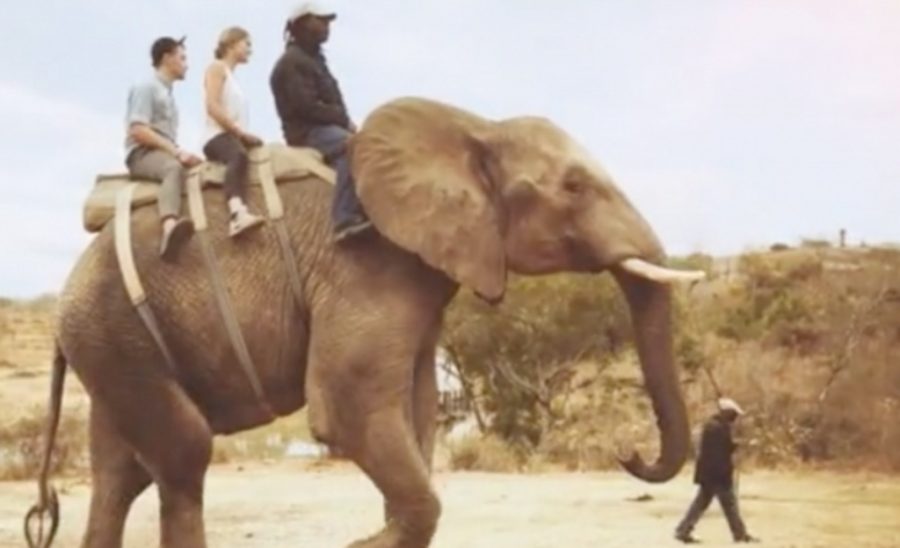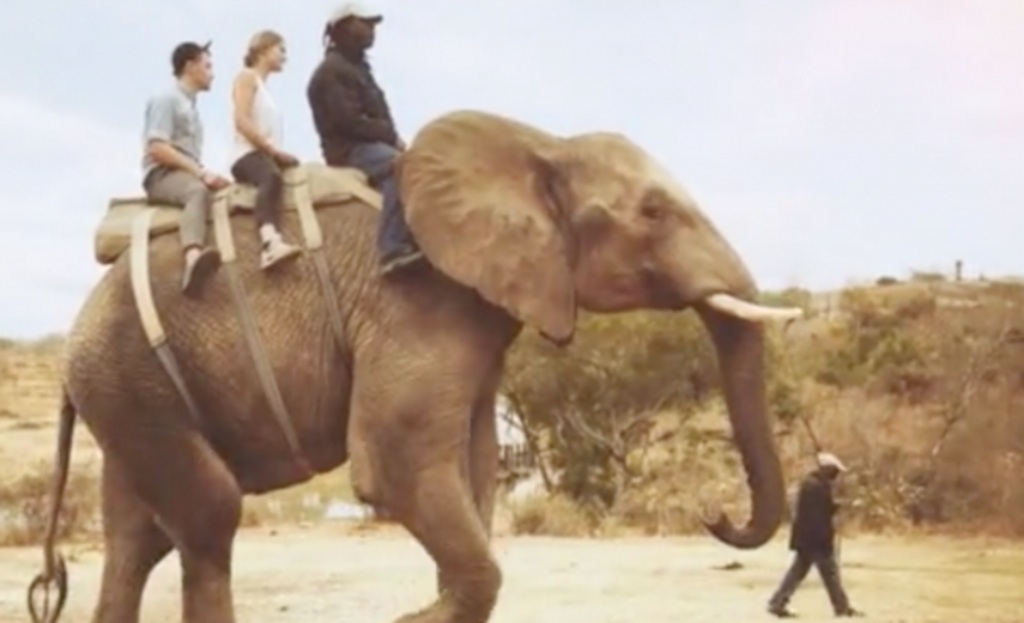
South African Operators Under Pressure to End Elephant Rides
A growing number of international tour companies refusing to promote elephant riding is putting South Africa’s elephant-back safari industry under pressure to pack in the lucrative but unethical/questionable practice of riding elephants. With an increasing global awareness for the welfare issues and cruel training methods associated with elephant-back riding, a drive to end the practice […]

A growing number of international tour companies refusing to promote elephant riding is putting South Africa’s elephant-back safari industry under pressure to pack in the lucrative but unethical/questionable practice of riding elephants.

With an increasing global awareness for the welfare issues and cruel training methods associated with elephant-back riding, a drive to end the practice worldwide is gaining momentum, and South Africa’s captive elephant industry is being forced to re-look at the elephant experiences they have on offer. As a result, of 14 elephant-riding facilities available in the country, five have announced terminating the practice over the last year.
“Based on the increasing international pressure against elephant-back safari, a decision has been taken to completely phase out (our) elephant-back safaris by April next year,” says Camp Jabulani owner, Adine Roode in a press release last week.
With the development of global guidelines for animal welfare in tourism by the UK’s Travel Industry Association (ABTA) and the launch of a campaign, “Wildlife. Not entertainers” by animal welfare organisation, World Animal Protection, over 100 international travel companies have pledged to stop promoting elephant rides, including Harvey World Travel, Africa Travel and TUI.
“We will not work anymore with suppliers who have elephant unfriendly excursions like riding or sitting on elephants and watching elephant shows,” says Elise Allart, Manager of Sustainable Development at TUI, Netherlands.
Adding to this mounting international trend, South Africa’s responsible tourism sector is moving in a similar direction as the rest of the world and also applying pressure to the local elephant riding industry.
“Most people are not sufficiently aware of the welfare risk to elephants in captivity tourism operations and we support a situation in which elephant riding and other forms of physical contact between captive animals and visitors is not practiced or promoted, especially those receiving public funds,” says Heidi van der Watt, MD of Better Tourism Africa and member of WTM Responsible Tourism Advisory Panel.
However, some elephant facilities in South Africa are arguing that their elephants are well looked after in large free-roaming areas and have not endured cruel training methods. They say the cruelty stigma attached to Asian elephant facilities should not be associated with facilities in South Africa. But the international travel organisations are not budging and say they will not promote facilities that offer rides regardless of the training methods they use.
“We told TUI Netherlands that we don’t use the same training methods which they use in Asia, but they said that they can’t draw a line between some places that are unethical and others that aren’t,” says Andries van Schalkwyk of Buffelsdrift Game Lodge near Oudsthoorn. “So we also succumbed to the pressure and stopped elephant riding in October 2015.”
But South Africa is by no means exempt from unethical practices in the captive elephant industry and incidents of abuse at facilities and circuses have been reported. The National Council of SPCA has laid charges for both unethical training methods and the illegal removal of elephants from the wild in recent years.
“Until we published photographs and irrefutable evidence that this was happening in our own country, there was a misunderstanding. It was generally thought that such methods were only used in Asia,” says Isabel Wentzel of NSPCA Wildlife Protection Unit, who has been active in raising public awareness around the cruelty associated with captive elephants.
“We have approached travel publications and airline magazines to explain that there is no quick, easy or humane way to “train” elephants to accept humans riding them – nor to “tame” wild elephants often forcibly removed from their herds, in itself inhumane and unacceptable.”
A report published last year by Wentzel and the NSPCA highlighted that all elephants living in captivity endure welfare deficiencies in one way or another and cruelty to captive elephants is not limited to extreme conditions with the use of chains, bull hooks and confinement alone.
According to the report’s research, it is impossible to tame an elephant in one lifespan since domestication can only be achieved over generations. Adding to this, no conservation benefits have been ascribed to captive elephant breeding programmes due to low breeding and high mortality rates.
For these reasons, elephants – which are recognised as sentient beings relying heavily on family bonds – more often than not display emotional and physical trauma in captivity. As a result of these scientific findings the captive elephant industry remains under scrutiny by welfare experts and conservationists across the globe.
“It’s high time that people view the elephant for what it is, a highly intelligent, caring, feeling animal that wants to live with its family and be left in peace. We know so much about elephant society emotions and cognition that it is not acceptable any longer to misuse the elephants for human entertainment,” says elephant expert, Marion Garai of the Elephant Advisory Group.
This article was originally published by Conservation Action Trust.